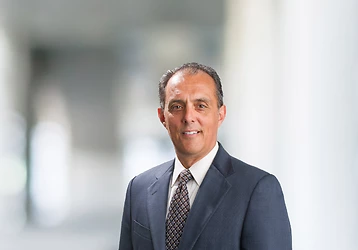Can Responding to a Request for Proposal be a Breach of an Employee’s Non-Solicitation Agreement?
Responding to a customer’s requests for pricing or proposal can be in breach of an employee’s non-solicitation agreement. That’s exactly what the Michigan Court of Appeals held in Total Quality, Inc. v Fewless, et. al., ___ Mich App ___; ___ NW2d ___ (2020)(Docket No. 346409). In that case, three individuals sold their ownership interests in the plaintiff Total Quality, Inc. (“TQI”), a transportation logistics company that provides services to pharmaceutical, biopharmaceutical, and generic drug manufacturers, distributors, and wholesalers in the United States, Canada, and Mexico. Two of the three, Terry and Nathan Fewless, remained on as employees and signed employment agreements that contained non-solicitation provisions. Those provisions stated:
Non-Solicitation. During the Employment period and continuing for two years thereafter, the Executive shall not directly or indirectly through another Person, (i) directly or indirectly induce or attempt to induce any employee of [TQI] to leave the employ of [TQI], or in any way interfere with the relationship between [TQI] and any such employee (provided, that any general solicitation through magazines, trade journals, newspapers, or other publications shall not constitute a violation of this clause (i); (ii) hire any Person who was an employee of [TQI] at any time during the twelve-month period immediately prior to the date on which such hiring would take place; or (iii) directly or indirectly call on, solicit, or service any customer, supplier, distributor, or other business relation of [TQI] in order to induce or attempt to induce such Person to cease doing business with [TQI], or in any way directly or indirectly interfere with the relationship between any such customer, supplier, distributor, or other business relation and [TQI] (including making any disparaging statements about any member of [TQI]). (emphasis added)
TQI was once again sold and both Terry and Nathan remained employed with the newly acquired company. Eventually, Terry resigned his position in October 2014 and Nathan resigned in April 2015. Between the time of their resignations, Terry had formed another company (defendant Quality Life Sciences Logistics (“QLSL”)) with Kris Fewless, the third seller of TQI, who had never joined the successor company. After Nathan left TQI, he became a 50 percent owner of QLSL, while Kris owned the other half of the business.
QLSL was also a logistics company that operated in the same industry as TQI. Ultimately, it procured business from at least three TQI customers, Pfizer, Perrigo and Actavis. QLSL also hired several former TQI employees. Within months of its formation, QLSL had obtained business from TQI customers. TQI sued Terry and Nathan Fewless and QLSL for breaching their contractual non-solicitation obligations by soliciting employees and business and for tortious interference with TQI’s business with its customers.
After a bench trial the circuit court found in favor of TQI and concluded that Terry and Nathan had violated the “solicit or service” provisions of their employment agreements. The trial court found that Terry and Nathan had taken affirmative steps to procure the business from Pfizer by setting up the competing business, by going through the Pfizer qualification process, and by preparing and submitting a bid for lanes that they knew were being serviced by TQI. The court determined that TQI suffered damages from the breach of contract in the amount of $550,663.
On appeal, Terry and Nathan argued, among other things, that TQI and the trial court erroneously construed the provision as a non-compete clause by finding that a violation of the non-solicitation clause could occur based on a response to an unsolicited customer-initiated request if the customer had a business relationship with TQI and the response resulted in any loss of TQI’s business. Defendants maintain that the contractual language defined the prohibited solicitation of customers in narrow terms and did not contain any language prohibiting Terry and Nathan from conducting business in competition with TQI without any intent to induce its customers to cease doing business with TQI or interfere with its customer relations. In essence, Terry and Nathan argued that they did not call on or solicit customers because those customers came to them and they were merely responding to the requests for proposals and pricing. The court of appeals rejected that position.
In relying on a dictionary definitions of the word “solicit” meaning “to make a petition to” or to “make a formal application,” the court concluded that the evidence substantiated that Terry and Nathan “made a petition to” Pfizer, TQI’s customer, to award QLSL business when it responded to Pfizer’s request for proposal with a bid to provide logistical services. Alternatively, the record evidence substantiated that they sought to be awarded Pfizer business by “formal application” when they responded to Pfizer’s request for proposal. The court found it irrelevant that Pfizer sent the request for proposal to QLSL and prompted QLSL’s response, because the non-solicitation clause prohibited Terry and Nathan from soliciting TQI’s customers, which they did by affirmative action by submitting a bid to service Pfizer. The court of appeals affirmed the circuit court’s ruling.
So what does this mean about the risks of soliciting business in the shadow of a non-solicit agreement? Candidly, you cannot rely on the fact that a customer initiated contact to claim that there was no solicitation. On the flipside, a claim for breach of a non-solicit agreement can certainly be brought against a former employee that attempts to hide behind the cloak of “they called me.” Granted, in the TQI case, there were other factors that weighed in the court’s conclusion and the facts of each case might merit a different outcome. Regardless, the message from this case is that you cannot count on being protected from a non-solicit agreement breach by arguing that merely responding to a customer’s request for pricing cannot be solicitation.
Phil Korovesis
313.983.7458
korovesis@butzel.com
Bernie Fuhs
313.225.7080
fuhs@butzel.com
Paul M. Mersino
313.225.7015
mersino@butzel.com
Butzel Long Trade Secret & Non-Compete Specialty Team
Phil Korovesis
313.983.7458
korovesis@butzel.com
Bernie Fuhs
313.225.7080
fuhs@butzel.com
Paul M. Mersino
313.225.7015
mersino@butzel.com
Carey DeWitt
248.258.2607
dewitt@butzel.com
Don Orlandoni
313.225.5314
orlandoni@butzel.com
Brett Rendeiro
248.258.1312
rendeiro@butzel.com
Ivonne Soler
313.225.7048
soler@butzel.com
Thomas Southard
202.454.2837
southard@butzel.com












